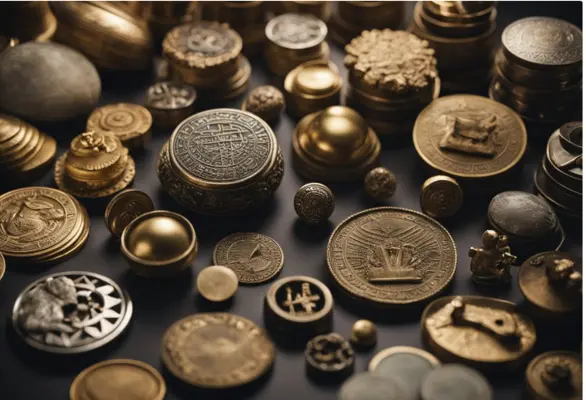From the remnants of ancient empires to the treasures buried beneath the sands of time, antiquity beckons with its enigmatic charm. In this comprehensive guide, we’ll explore the significance of antiquità, its impact on archaeology, and the timeless allure of ancient relics.
Exploring the Significance of Antiquità:
Antiquità, derived from the Latin word “antiquitas,” encompasses the study and appreciation of ancient artifacts and cultural heritage. These relics serve as tangible links to our collective past, offering insights into bygone civilizations and the evolution of human culture. From pottery shards to majestic monuments, each artifact holds a story waiting to be told.
Unearthing Ancient Treasures:
The excavation of archaeological sites yields a treasure trove of antiquities, ranging from everyday objects to monumental structures. These discoveries provide invaluable clues about ancient societies, their customs, beliefs, and technological advancements. By meticulously cataloging and analyzing these artifacts, archaeologists piece together the puzzle of human history.
Preserving Cultural Heritage:
As custodians of our collective memory, preserving antiquità is paramount to safeguarding our cultural heritage for future generations. Museums, archaeological sites, and heritage organizations play a crucial role in protecting and showcasing these artifacts. Through conservation efforts and public outreach initiatives, we ensure that the legacy of antiquity endures.
The Allure of Ancient Civilizations:
The fascination with ancient civilizations transcends time and borders, captivating the imagination of people across the globe. From the towering pyramids of Egypt to the majestic temples of Greece, antiquity holds a timeless appeal that continues to inspire awe and wonder.
Legacy of Empires:
Ancient civilizations such as Egypt, Rome, and Mesopotamia left an indelible mark on history, shaping the course of human civilization. Their achievements in art, architecture, science, and governance continue to influence our modern world. By studying their legacy, we gain a deeper understanding of our own cultural roots and heritage.
Mysteries of the Past:
Despite centuries of study, many aspects of ancient civilizations remain shrouded in mystery. From the construction of monumental structures to the decipherment of ancient scripts, archaeologists and historians continue to unravel the enigmas of the past. Each discovery brings us closer to unlocking the secrets of lost civilizations.
FAQs (Frequently Asked Questions):
Q: What is the significance of antiquità in modern society? Antiquità serves as a bridge between the past and the present, offering valuable insights into our cultural heritage and identity. By studying ancient artifacts, we gain a deeper appreciation for the achievements and challenges of past civilizations.
Q: How are antiquities authenticated? Authentication of antiquities involves a rigorous process of examination and analysis by experts in the field of archaeology and art history. Techniques such as carbon dating, stylistic analysis, and provenance research are used to determine the authenticity and age of artifacts.
Q: What are the ethical considerations surrounding the trade of antiquities? The trade of antiquities raises ethical concerns regarding looting, illegal excavation, and the illicit trafficking of cultural heritage. It is essential to promote ethical practices, including responsible collecting, repatriation of stolen artifacts, and adherence to international laws and conventions.
Q: How do museums acquire antiquities for their collections? Museums acquire antiquities through donations, purchases, and collaborations with archaeological expeditions. It is crucial for museums to ensure the provenance and legality of artifacts in their collections, adhering to ethical guidelines and standards.
Q: What challenges do archaeologists face in preserving antiquities? Archaeologists face various challenges in preserving antiquities, including funding constraints, environmental degradation, looting, and illicit trafficking. Conservation efforts require interdisciplinary collaboration and community engagement to safeguard our cultural heritage effectively.
Q: How can individuals contribute to the preservation of antiquities? Individuals can contribute to the preservation of antiquities by supporting museums, cultural heritage organizations, and archaeological initiatives. Additionally, raising awareness about the importance of cultural heritage and advocating for ethical practices helps protect antiquities for future generations.
Conclusion:
In conclusion, antiquità offers a window into the past, allowing us to connect with the rich tapestry of human history. Through the study and preservation of ancient artifacts, we honor the legacy of past civilizations and enrich our understanding of the world. Let us continue to cherish and safeguard our cultural heritage for generations to come.

